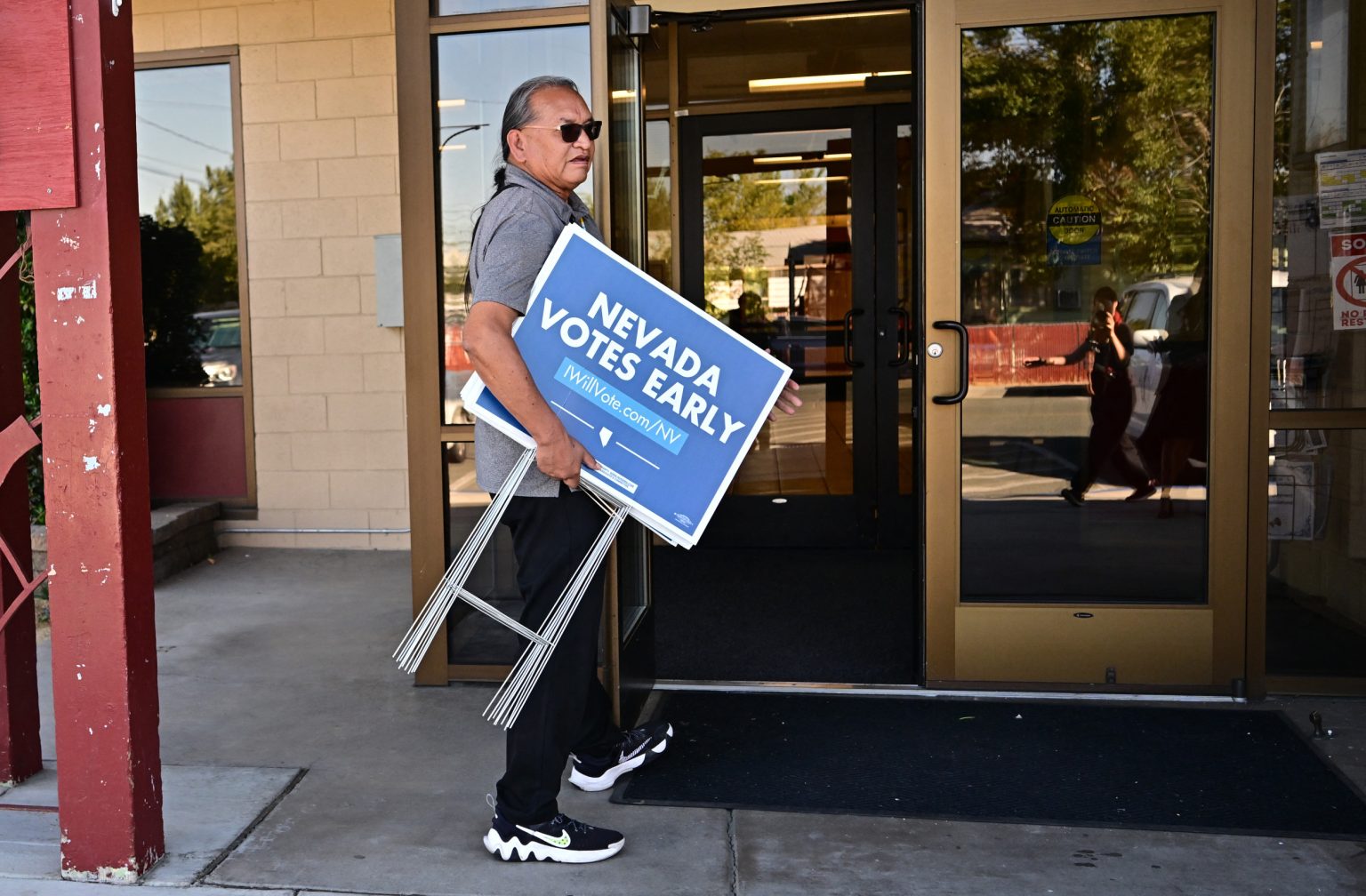With the 2024 election approaching, Vice President Kamala Harris and former President Donald Trump are both recognizing Native American communities as pivotal voting blocs in swing states such as Arizona, Nevada, and Michigan. Native American voters have become increasingly important in U.S. elections, with their turnout sometimes being the deciding factor in close races. In states like Arizona, Nevada, and Michigan, their support has contributed to Democratic victories in recent elections.
As the Democratic presidential nominee, Harris has launched a $370 million ad campaign targeting tribal lands and made commitments to protect treaty rights and uphold tribal sovereignty. This approach aligns with the Biden administration’s outreach efforts in 2020, which were successful in mobilizing Native voters. On the Republican side, Trump’s campaign has taken a different approach. While refraining from direct outreach, Trump allies like Republican Senator Markwayne Mullin of Oklahoma have been campaigning in Native communities, focusing on issues like tribal self-determination and energy independence.
Key issues for Native American voters include honoring treaty rights, upholding tribal sovereignty, economic opportunities, and environmental protections. Native Americans are one of the youngest and least partisan voting demographics in the U.S., often driven by issues that directly impact their communities. Gabriel R. Sanchez, a senior fellow at the Brookings Institution, noted that Native Americans tend to vote for Democratic candidates due to their focus on these critical issues.
Crystal Echo Hawk, CEO of IllumiNative, a nonprofit working to increase the visibility of Native Americans, highlighted the importance of Harris’ investments in issues like treaty rights and tribal sovereignty. However, she expressed concern over the lack of targeted messaging and outreach from the Trump campaign. Despite bipartisan support for issues like federal recognition of the Lumbee Tribe in North Carolina, some of Trump’s policies, such as the reduction of Bears Ears National Monument and the revival of the Keystone XL pipeline, remain unpopular with Indigenous peoples.
In states like Arizona, Nevada, and Michigan, Native American voters have played a crucial role in determining election outcomes. Their support has been instrumental in securing victories for Democratic candidates in previous elections. Harris and Trump have adopted contrasting strategies in engaging Native voters, with Harris focusing on building on the Biden administration’s achievements and Trump allies campaigning in Native communities on issues like tribal self-determination and energy independence.
As the 2024 election approaches, the attention on Native American communities as a pivotal voting bloc in swing states continues to grow. Both Harris and Trump are making efforts to engage with these voters and address key issues important to Native Americans, recognizing their significance in influencing election outcomes. With Native voters driving by concerns related to land rights, economic opportunities, and environmental protections, their support could potentially sway the results in crucial swing states.


